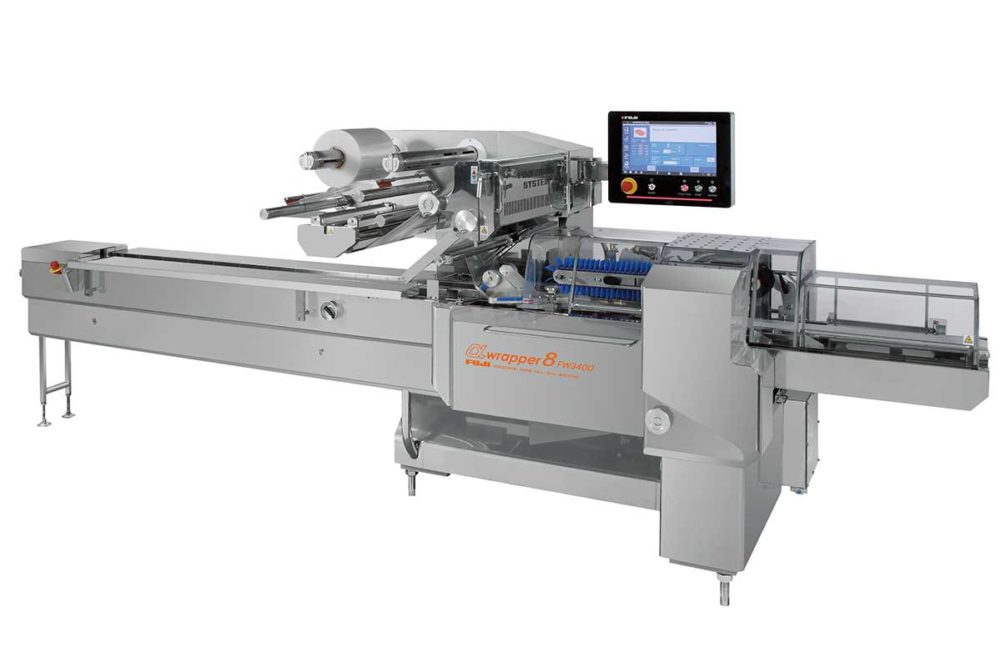Walking a trade show floor filled with the latest in packaging equipment is a wondrous feast. Robotics pick up the tiniest products and move them quickly and cleanly. They can assemble and move large boxes and sort all manner of baked goods with ease. It’s all done in the blink of an eye.
Packaging automation is certainly a buzzword in the baking industry as companies strive to find new ways to keep lines running during a labor crunch that never seems to subside. Many businesses are turning to robots and cobots to get the job done and exploring other hardware and technologies. Another advancement garnering a lot of attention these days is data — collecting it, analyzing it and using it to improve packaging processes.
“The No. 1 thing to understand that’s important, it’s about data,” said Jorge Izquierdo, vice president, market development, PMMI. “In the past you could get it, but it was very expensive. Now it’s very accessible. You can store it and use it to optimize your operations. That’s really the core of the industrial internet of things (IIoT). … What we’ve found for the food industry, the CPGs, some of the first applications related to IIoT and artificial intelligence are related to optimize their operations, specifically to cut down on downtime.”
Now that data analysis is more accessible for players big and small across the industry, bakers can collect vital information in their plants. Companies no longer need to build their own hardware networks to access it. They can test out software in the cloud to see what information can benefit their operations.
“At any moment in time, they could be generating hundreds of points of data per machine,” said Adam Griffen, product manager, Mettler-Toledo. “Being able to drop that data in clouds and let machine learning analyze the data and find the patterns for you and tell you what information is important for you to look at … is really valuable.”
Mr. Griffen added that Mettler-Toledo surveyed large food manufacturers, and they indicated they are looking at five-year plans to adopt some of the new technology.
Other companies are figuring out new ways to collect data and use it to help bakeries and snack manufacturers.
“Rexfab is making great strides using the data collected by sensors and analyzing it with artificial intelligence,” said Patrice Painchaud, vice president of sales and marketing, Rexfab. “As this technology develops further, the packaging systems will be able to improve in all facets, from increasing speeds to reducing downtime and unneeded wear.”
Data management has several applications, including proving government compliance quickly and easily. And reports generated digitally rather than on paper mean audits can be done online rather than onsite, Mr. Griffen said.
“Eventually data required to prove you are compliant may need to be exposed on the internet and visible to your entire supply chain,” he said. “And this is why we think that all the food manufacturers are putting in five-year plans to get connected. So if within 10 years this becomes a legal requirement, they’re all ready for it.”
Data also allows companies to determine where bottlenecks are occurring in packaging lines, which piece of equipment might be causing the most downtime, and help companies identify which problems to prioritize to keep lines moving, Mr. Griffen said.
Mr. Izquierdo recommended that companies hire a data management expert and have their cybersecurity in place since they likely will be sharing information with third parties. The final piece is sharing data and insights with employees to ensure they understand the information and act as needed to keep plants running efficiently.
This article is an excerpt from the December 2021 issue of Baking & Snack. To read the entire feature on Packaging Innovation, click here.






